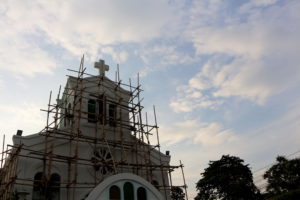
Is a Church A Public Project, or a Private Commercial Project?
Short Answer: Private commercial project, every time.
Long Answer: Everyone who has taken a political science class in college or a social studies / civics course in high school should remember that the United States was founded on the principle of a separation between church and state. Despite this, I get this question with surprising frequency: Is a church a private or public project?
The same question comes up with other projects that I’ll call “public feeling.” These include private universities, non-profit organizations, hospitals, etc. These “public feeling” places are places that are either open to the public or operate a lot like a government entity. When faced with labeling the project as “commercial,” “state” or “federal,” folks sometimes take a pause because of the “public feeling” of the project.
None of this has any bearing of what type of project it is. I previously published a blog post on the differences between private and public projects, with the essential point being this:
State projects = construction on property owned by the state government
Federal projects = construction on property owned by the federal government
Private projects = construction on property not owned by the state or federal government, including on property owned by non-profits, churches, private universities, private hospitals, etc.
While some of these “public feeling” projects may be a bit more ambiguous than others (i.e. a private university will be a private project, and a public university will be a state project), churches are never ambiguous. Because of the clear separation of church and state in the US Government system, there is no example of when a state or federal government will own a church property. As such, work on churches is always private, commercial work.
And, of course, you can file a lien on a church just like any other property.